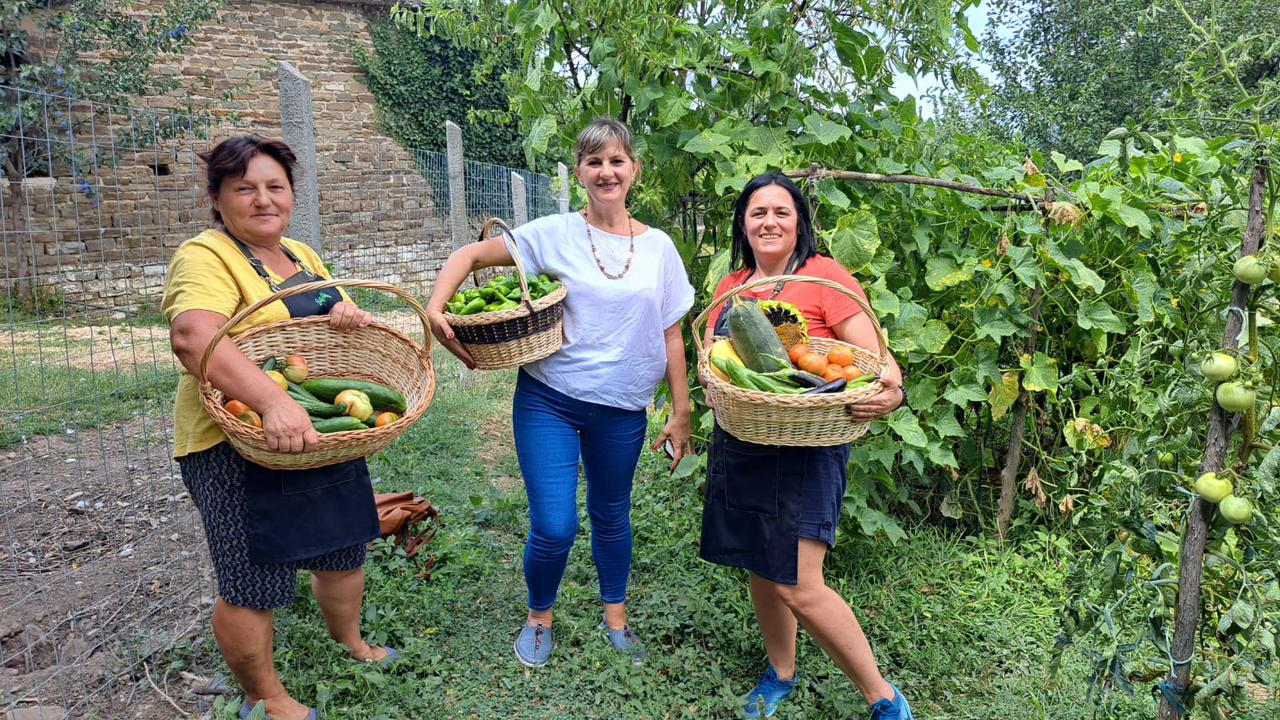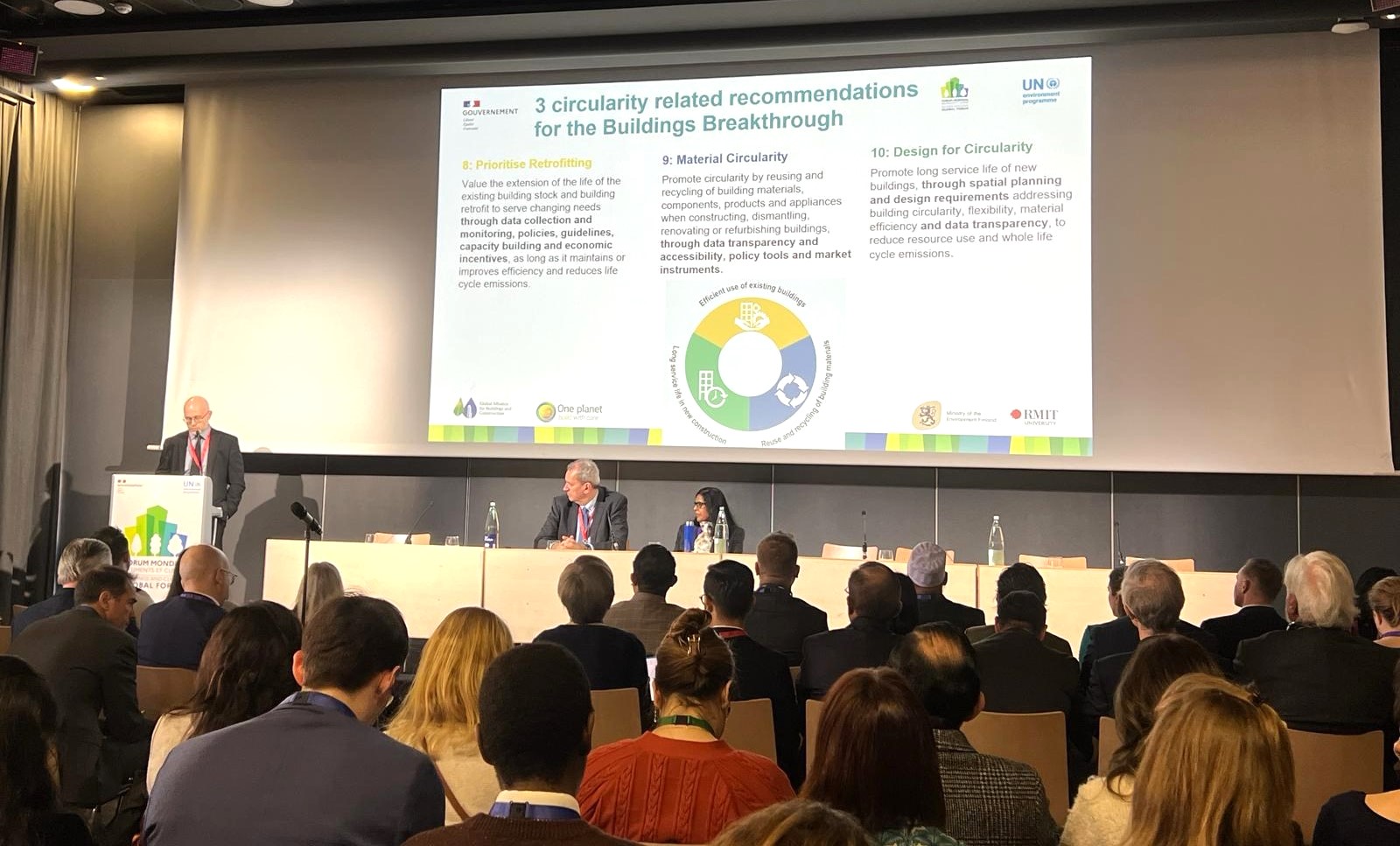Club Med and Agrisud contribute to local development in Senegal, Brazil, Morocco and Indonesia
The local development project spearheaded by Club Med and the NGO Agrisud supports local producers in precarious situations living close to Club Med resorts in Senegal, Brazil, Morocco and Indonesia. This initiative’s aim is to organize a lasting match between the local supply of food products and the demands of Club Med resorts ; and to ensure fair remuneration for producers and a strong distribution of added value, giving the poorest groups access to these markets.
Finding that in some cases local supply was inadequate to meet its resorts' demand for fresh produce, Club Med decided to help strengthen this network, by playing an active role in the economic development of the regions where it operates. This decision led to a partnership with the NGO Agrisud, signed in 2008, to strengthen the supply chain through its partnership– championing the NGO’s efforts to economically integrate people in precarious situations, through very small agroecological family farms that are well established in local markets.
Since 1992, Agrisud has helped to create over 59,000 Very Small Businesses in 25 countries and across four continents.
The desire to implement short supply chains for tourism facilities (restaurants, hotels, etc.) in ways that complement local markets is not new. But sourcing supplies from small producers in ways that are consistent with operational realities requires the producers to upgrade their systems, and for tourism facilities, to adapt their sourcing and supply systems.
But in reality, it is not so easy to align supply and demand within a sustainable win-win relationship in such a way, to make a significant impact within a given region.
Family farms are rarely able to seize the outlet opportunities presented by tourism operators to complement market outlets. There are many constraining factors: irregularity of production, limited diversity and/or quantity of products, issues of quality, lack of (price) competitiveness, the informal nature of these farms making it difficult for them to meet the administrative requirements of hotel operators, etc.
At the same time, many operators want now to develop local supply chains. This willingness makes often part of a global CSR policy designed to support the socio-economic development of the region concerned. It is also a response to the requirements set by certification and the positive pressure of the customers, more and more sensitive to the issues concerning ‘responsible’ and local consumption. A proportion of these customers are also concerned about the redistribution of the benefits (the fair trade principle) and the need to contribute to local development.
The project intends to facilitate long-term fair trading partnerships between family farms and hotel operators by offering methods and resources that remove the constraints and make stakeholders stronger in order that initiatives can be replicated.
The project’s approach is comprehensive – spanning the entire supply chain from the producer to the end customer, in order to match the non-professional supply side with the high expectations of the demand side. Agrisud interacts with farming Very Small Businesses near Club Med resorts in order to:
– Strengthen producers’ capacities in technical matters (e.g., agro-ecological practices),economic management (e.g., the development and analysis of operating accounts) and organizational issues (e.g., the bulk purchase of seeds, the maintenance of irrigation systems, etc.);
– Establish a sustainable local procurement system through the participatory development of the procurement protocol, as well as by grouping producers into commercial cooperatives.
The partnership was signed in 2008. It has been deployed in 4 countries:
o In 2009 in Senegal at Cap Skirring
o In 2010 in Brazil in Rio
o In 2011 in Morocco with the support of orchards in Asni not far from Marrakech
o In 2014 in Indonesia in Bali
o In 2015 on a second site in Brazil in San Paolo
o In 2016 on a 2nd site in Senegal in Saraba
o In 2016 on a 2nd site in Morocco in support of market gardeners in the Palmeraie of Marrakech
The projects enabled in 2017,:
- the early cropping of production (two months earlier than normal), improved diversity and higher quantities tripled VSB income at Cap Skirring (Senegal). Completion of the project to install solar powered pumps has provided easier access to water for 179 market gardeners, enabling them to cut their fuel consumption by 30%
- the startup of agro-ecology production and sales to Club Med from the newly-supported project at La Palmeraie in Marrakesh, Morocco
- the second year of agro-ecology production and the doubling of production supplied to the Village by the Bali project in Indonesia
- closer involvement of Club Med teams and a strengthening business relationship with confirmed weekly purchasing commitments at Rio das Pedras, Brazil.
Sustainable economic growth
The project contributes to securing fresh, locally sourced produce while increasing the share of local purchases in Club Med’s procurement practices. It also promotes equal access to economic resources for women through its initiatives in Senegal, which are specifically geared towards women suppliers.
Social inclusiveness, employment and poverty reduction
By offering farmers and producers training and support to thrive in the market economy, the initiative helps farmers to emerge from marginal or precarious situations; contributes significantly to poverty reduction; and helps to re-localize rural farming, thus fostering social inclusiveness.
Resource efficiency, environmental protection and climate change
Environmental protection and resource efficiency are promoted through the initiative as it encourages produces to use land more sustainably. It also secures access to water for rural residents by championing solar energy.. The project also strives to reduce CO2 impact in terms of carbon sequestration by vegetable and tree-planting and reduction of transportation of produce and other supplies.
Cultural values, diversity and heritage
Providing guests with buffets featuring fresh, local and eco-friendly products helps to showcase the rich culinary heritage of local communities. Tourists and locals alike are able to share this heritage through moves to encourage meetings between customers and producers through exhibitions in Club Med’s restaurants and via solidarity excursions to local farms.
Mutual understanding, peace and security
The project fosters mutual understanding by improving the local ties of Club Med resorts, as well as by involving diverse actors – customers, producers and local NGOs – and offering opportunities for engagement between tourists and local producers.
Key results achieved by project include:
– A total of K€ 640 in support to the initiative;
– Assistance, training and overall support for local 407 Very Small Businesses across 4 countries;
– 2,500 beneficiaries, including both producers and their families; and
– A cumulative total of 129 tons of agro-ecological production.
The initiative has enabled local development that embraces all the dimensions of sustainable development. Its economic and social dimension is coupled with a positive environmental impact achieved through agro-ecology, biodiversity, low water consumption, soil resilience and carbon capture.
Next steps for the partnership consist in:
o Extending the partnership to new resorts and countries. In 2018, a feasibility study was conducted on Mauritius Island, and will lead on to a new project in 2019. In China, the project at Guilin is planned with local partners and support from the Fosun Foundation
o Developing the share of products purchased by the Club Med to the producers
o Developing the fundraising via the Foundation of Friends
o Creating pedagogical gardens with Agrisud in other resorts
Application of this approach in other contexts
The strength of this development approach is that the project is repeatable and has very real impacts. Some of these are quantifiable, while others are more qualitative, but all are practical and tangible and genuinely change the direction of people’s lives.
The interest of GIZ in developing this type of project in Morocco alongside Agrisud says much about the exemplary nature of the project.
Club Med has initiated a similar initiative in the Rhône-Alpes region to develop local products from agro-ecology for the Club Med Villages of the Alps. An agreement was signed in 2018 between Club Med and FRAPNA (Rhône-Alpes Federation for the Protection of Nature, federation of associations for the protection of nature and the environment in Rhône-Alpes) to collaborate on a mission of studies and feasibility analyses on local practices and the conversion of farms to agro-ecology; fragile economic structures and health-environment benefits for the inhabitants of the territory; and on short circuits and local recovery and supply chains. Agrisud will be consulted as an expert in the framework of this 1st mission.
External source(s)
Image

photogrpahie de Madeleine Caillard
Project start date
01/01/1970
Project end date
01/01/1970

